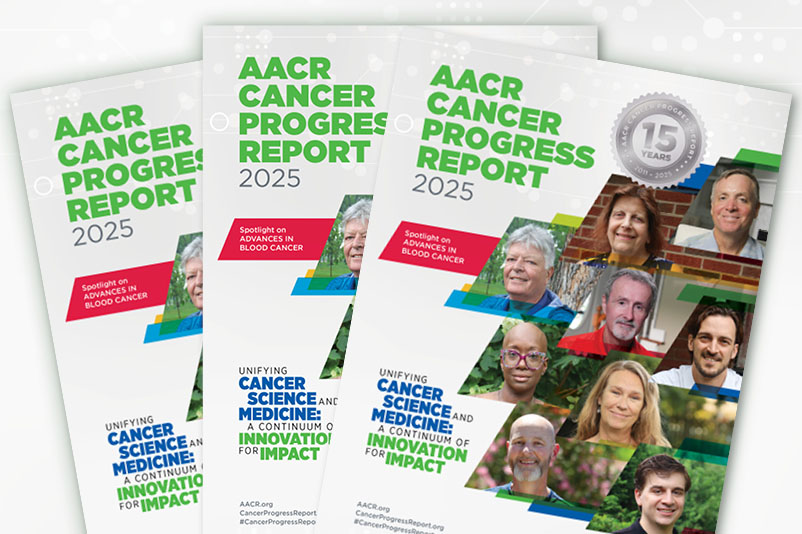Every week, the editors of Cancer Today magazine bring you the top news for cancer patients from around the internet. Stay up to date with the latest in cancer research and care by subscribing to our e-newsletter.
Progress in Cancer Research Sets Stage for Sustained Funding Push in D.C.
The American Association for Cancer Research (AACR) released the 15th annual AACR Cancer Progress Report Sept. 17. While highlighting key cancer research milestones in general, the report honed in on notable treatment advances for people with blood cancer. For example, between 1991 and 2023, non-Hodgkin lymphoma mortality rates declined by 43%, and multiple myeloma mortality rates declined by more than 31%—even as incidence of these cancers rose, Healio reported. “Progress against blood cancer has led to a revolution in precision cancer medicine,” AACR President Lillian L. Siu, a medical oncologist at Princess Margaret Cancer Centre in Toronto, said during a media briefing in Washington, D.C., on the day the report was released. “The [latest AACR Cancer Progress Report] is not only a record of how far we have come but also a reminder of how much remains at stake,” Siu said. The AACR Cancer Progress Report also shares stories from cancer survivors, including Richard Schlueter, whose treatment for head and neck cancer was delayed because of budget cuts at the National Institutes of Health. On Sept. 18, he and other patient advocates met with members of Congress to impress on them the importance of funding medical research as part of the 13th annual Rally for Medical Research Hill Day. (The AACR publishes Cancer Today and is a founding organizer and lead sponsor of the Rally for Medical Research.)
Low-dose Aspirin Fends Off Colorectal Cancer After Surgery
Some people who take a low-dose aspirin after colorectal cancer surgery may be able to reduce their risk of recurrence, according to a study published in the New England Journal of Medicine.Researchers looked at 1,103 people with early-stage or locally advanced colorectal cancer that had PI3K pathway alterations. The study divided participants into two groups: people whose tumors had PIK3CA mutations and those who had other related mutations. In both groups, 7.7% of people who took aspirin had a recurrence after three years. In those who received a placebo, 14.1% of people whose cancer had PIK3CA mutations had a recurrence, and 16.8% of people whose cancer had other mutations had a recurrence. These results reinforce the importance of tumor testing for all people with colorectal cancer, Anna Martling, a colorectal cancer surgeon at the Karolinska Institute in Stockholm who led the trial, told the Guardian. “I think this will change clinical practice,” Martling said. “If you had these mutations, the risk of the cancer coming back was lowered by more than 50%. It is a huge effect.”
Blood Tests That Screen for Many Cancers Still Lack Evidence of Benefit
Evidence is sparse when it comes to assessing the value of multi-cancer early detection (MCED) tests, which are blood tests designed to detect multiple cancers in people who do not have any symptoms. A study published in the Annals of Internal Medicine reviewed 20 different controlled trials that measured the accuracy of 19 MCED tests and found widely different results. None of the studies measured the impact of screening with MCED tests on cancer detection, mortality or quality of life, MedPage Today reported. The Food and Drug Administration has not approved any MCED tests. However, these tests, including OneTest and Galleri, are commercially available as lab tests that can be ordered by physicians. “This lack of data should give pause to any patient or clinician ready to embrace [MCED] tests today,” David S. Weinberg, a gastroenterologist at Fox Chase Cancer Center in Philadelphia, wrote in an accompanying editorial in the Annals of Internal Medicine. Weinberg wrote that he believes the research will improve with time, MedPage Today reported.
Cancer Today magazine is free to cancer patients, survivors and caregivers who live in the U.S. Subscribe here to receive four issues per year.





